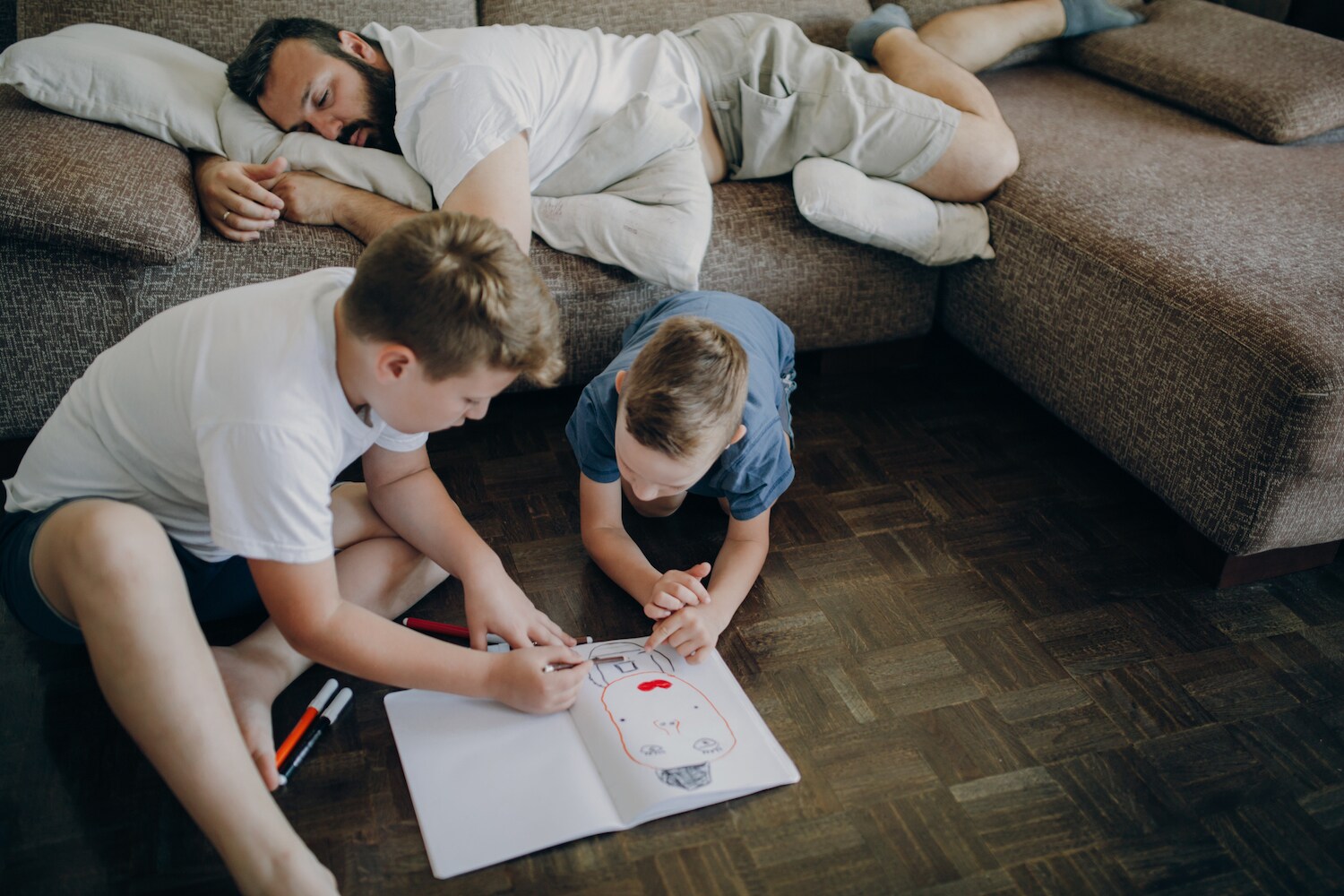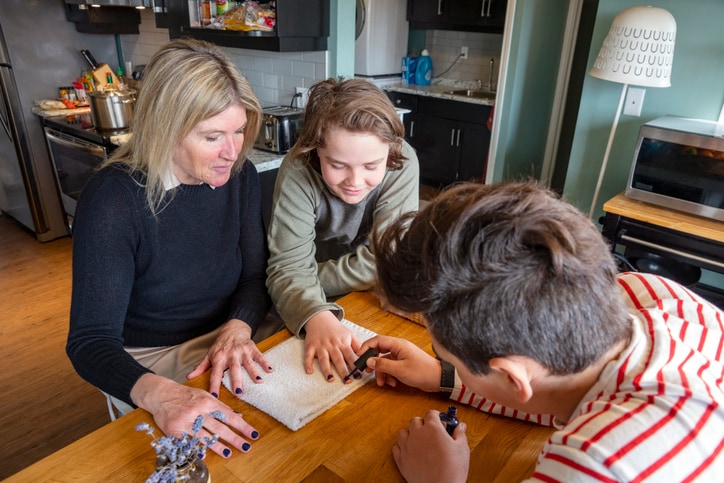For many moms, the hardest part of being a parent is not the lack of sleep, the busy schedule or even the never-ending laundry; it’s being the only person responsible for all of it. In many ways, moms are still considered the “default” parents by society, and the mental, emotional and physical burden of this definitely takes its toll. That’s why so many moms are responding with a resounding “yesssss” to a recent blog post by certified life coach and mom mentor Graeme Seabrook that lays out everything many moms are responsible for and boldly asks their partners why they aren’t stepping up.
“Why are you here?” Seabrook asks dads everywhere. “Are you here to raise your family in partnership with someone you love?”
The post takes the form of a questionnaire, challenging dads to answer basic questions about their children that society would typically expect a mom to know right off the bat. It asks things like:
-
What are the names of your kid’s two best friends?
-
What sizes of clothing and shoes do your kids wear? Where do you usually buy them?
-
How do you create a meal plan that takes into account everyone’s nutritional needs, allergies, preferences, what is already in your fridge and pantry, as well as the family budget?
-
Who is your child’s pediatrician? Where are they located? What are their hours? What is their phone number? Does your child like them?
Seabrook also asks partners to think about what they are bringing to their families: “Do you provide emotional stability? Do you provide logistical support? Do you provide physical labor? … Or do you provide another person she has to plan for, someone else to remind to go to the doctor, more laundry she has to do, more dishes for her to wash, more presents to choose, buy, wrap and send to your parents for their birthdays, more schedules to work around, another person to clean up after, more asking and asking and asking to be seen, to be acknowledged, to be partnered?”
The post pulls no punches, and dozens of moms on Seabrook’s Facebook page have said that they feel seen and acknowledged in a whole new way because of it. One mom joked, “Can we get this as wallpaper for the bathroom?” Another said, “Holy sh*t. I’ve never felt more seen by a stranger and now realize how I am clearly not alone with these struggles. Time for these men to ‘Dad Up!’”
The post is one of many that have gone viral recently in reference to the mental load — the unseen stress and emotional labor that goes into running a household and often falls solely on moms. But, unlike many of the posts on the subject, Seabrook says the goal of her post is not to shame anyone or even to say that moms need more help. Rather, she says, the post is about challenging couples to confront the different expectations we hold for moms and dads.
Seabrook, owner of a coaching service and community for moms, helps her clients work through the challenges of motherhood and create a more balanced and fulfilling life for themselves. She tells Care.com that her post was inspired, in part, by the many “amazing, fabulous, brilliant moms” she talks to each day who feel like their workload, stress and feelings of overwhelm go mostly unseen by their partners.
“It’s not just a mental load, it’s an emotional load and a physical load and a mental load, and it takes over your whole life,” she tells Care.com. “And moms aren’t naturally better at parenting. Moms aren’t naturally better at any of this. We really aren’t. We’ve just put in our 10,000 hours.”
Even though it’s 2019, and most partnerships are more equal than they were several decades ago, it’s a proven fact that many moms still take on the majority of household tasks and spend more time on child care than dads do. According to a 2017 parenting survey by Bright Horizons, women are still twice as likely to be managing the household, and married women who are the primary earners for their families are three times as likely to be the manager of their children’s schedules when compared to primary-earning fathers.
Of course, there are plenty of partners who are pulling their weight. Seabrook’s own husband is an example of a partner who takes on his share of the housework, cooks meals and cares for their children. Seabrook doesn’t see that as something special or extra, but as proof that other partners can step up, too.
“[If] he could do it, all of these other guys could do it,” she says. “He’s not that special. He’s a really great guy, but he’s just a dude.”
So, what’s stopping more partners from getting on board?
“What’s really at the bottom of all this is: Whose responsibility is it to make sure that your children become happy and healthy adults?” Seabrook says. “And at the core of it, the vast majority of us — probably 99.99% of us — still believe that it’s the mother’s job to do that.”
These expectations aren’t anyone’s fault. Often, they’re something we were raised with or adopted unconsciously. But to address the problem, Seabrook says it requires confronting those expectations head on.
“It’s about really asking your partner, ‘What do you think my job actually is as a mother? What do you think your job is?’” she says. “… These aren’t conversations we’re having before we have kids. People might have general political conversations and talk about how they were raised before they have kids, but they’re not having the real nuts and bolts conversation of: ‘What do you think it means to be a father? What do you think it means to be a mother? Do we agree?’”
Ultimately, what Seabrook wants parents to take away from her post is the understanding that this is a common struggle, but it isn’t one that moms should cope with in silence.
“You’re a human being,” Seabrook says. “You’re a person … You have so many more facets to your life than only mothering. The only way for you to be fully yourself is if the other people who are parenting with you — whether that’s a partner, husband, ex-husband, whatever — are going to be fully partners.”






